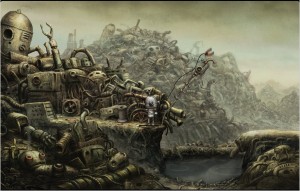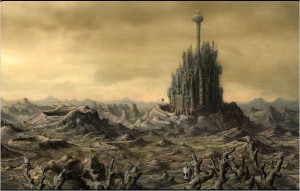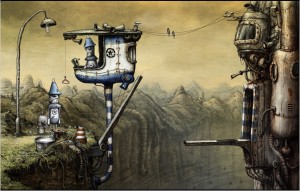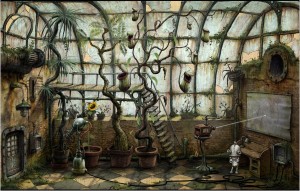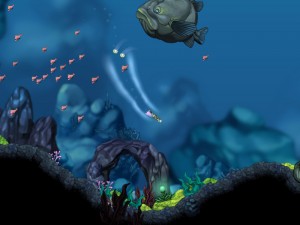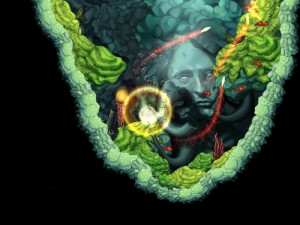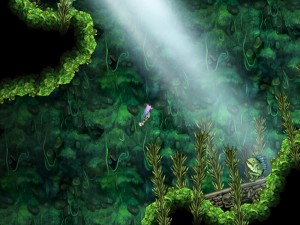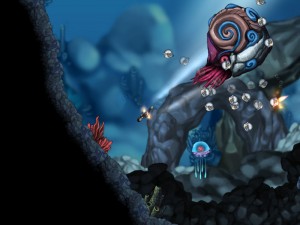A couple cute Linux games
I spent Christmas writing lectures and I thought I deserved a little break. As a reward I had a brief look though some commercial games available on Linux. I am not all that keen to support closed source development, but the game side of the open source world is sadly relatively weak, and I am pro supporting publishers who develop with Linux in mind. Traditionally, closed source games were a pain to install and would break after updating the kernel or libc (as I found recently when trying to play some). This seems no longer the case. I have gone though maybe 20 demos and all worked out the box on Fedora 12. Here are the two that really stood out.
Machinarium
This is a game by Amanita Design who have been making some fantastic things with flash for years now. One of the best things I have seen from them is a very short game they made for The Polyphonic Spree (who are amazing in their own right) where it became a different way to experience their album.
Machinarium is a much longer and fuller game with vast amounts of detail. You play as a cute little robot who has been discarded in a pile of junk.
The scenery of every screen is fantastically detailed with layered moving foregrounds and animated background characters.
The body of the game is a puzzle adventure. These are often frustrating as you spend hours of your time trying to rub every object against every other object to make anything happen. The puzzles here are, on the whole, rather logical. You rarely have more than four items in your inventory and the game has a fantastic hint system. There are two types of hints, the hint icon simply repeats the obvious stuff you should have noticed. The second hint system gives you a cheat sheet for that screen, only if you pass a level of a mini game. The mini-game is a last resort thing but the cheat sheet is a hand drawn scribble notes explaining the solution in an incredibly cute way. When the robot gets a bit bored he starts day dreaming, giving a short entertaining animation.
Having said that, there were some weird dead ends I ended up getting into. At one point, I needed an oil drum which was offered in a shop. The shop owner asked for moeny, so I spent ages wondering around looking for sources of cash. The actual solution (SPOILER ALERT: of throwing a swarm of flies into his eyes and stealing the drum) was somewhat bizarre.
For $20 (£12.40 in the UK) you get about 4 hours of game-play. If you like this game, you should also try Samorost (Free) and Samorost 2 ($5).
Aquaria
This is not the first time I played Aquaria. It was an addiction of mine a couple years ago, before I removed my Windows installation. This is one of the most engrossing games I have ever played. On the face of it, you basically swim around and solve the mystery Aquiaria. The game is part puzzle mystery, part atmospheric escapism and part arcade shoot-em-up and one of my favourite games of all time.
The swimming comes very naturally and it is a pleasurable experience just to have a bit of a swim though the environment. As the game progresses, you attain more powers, which open up more of the vast map to explore. Unfortunately this was ruined somewhat by one of the final powers, the power to get a boyfriend. I liked Niaja (the main character in the game), she is strong, determined and has kick ass moves. Yet then she falls in love with the most pathetic guy who follows her around, occasionally throwing a fire bolt at some harmless fish and uselessly getting stuck flapping around on every piece of rock you go past. Then he manages to get himself captured and I could never get past the final boss to free him. This is possibly because I suspected the final scene would be them swimming hand in hand towards the sunset while I was screaming at the monitor “NOOOOOOO! You can do so much better! He is not the only fishman in the sea!” (well actually he is, but that’s not the point).
So, as I mentioned earlier, the game can be very hard at points. This can frustrate you if you can’t get past some stage. The second issue is the enormity of the map. The game is sandboxish, which allows you a bit of freedom to the order in which you attain your powers. On the other hand, you can spend quite a while swimming around looking for areas you have not explored.
It is a shame that many people will snub this game for it’s girly overtones. Cookery and collecting recipes features heavily which I found a bit bizarre at first become compelling after a while as you collect ingredients to attain special temporary attributes. I was completely trapped by this game for weeks and enjoyed it immensely.
Aquaria still has not been released for Linux, but the beta has. The free beta version is of the full game with no restrictions (although the site says this is only until mid February 2010), and I have not seen any bugs yet. There is a solid month worth of game-play here and even when the game becomes final, it is easily worth the £13.54 that the Windows and MacOS versions are selling for. I should also mention that the game does use a lot of open source elements. There is a heavy use of ogg/png and the lua scripting language.
